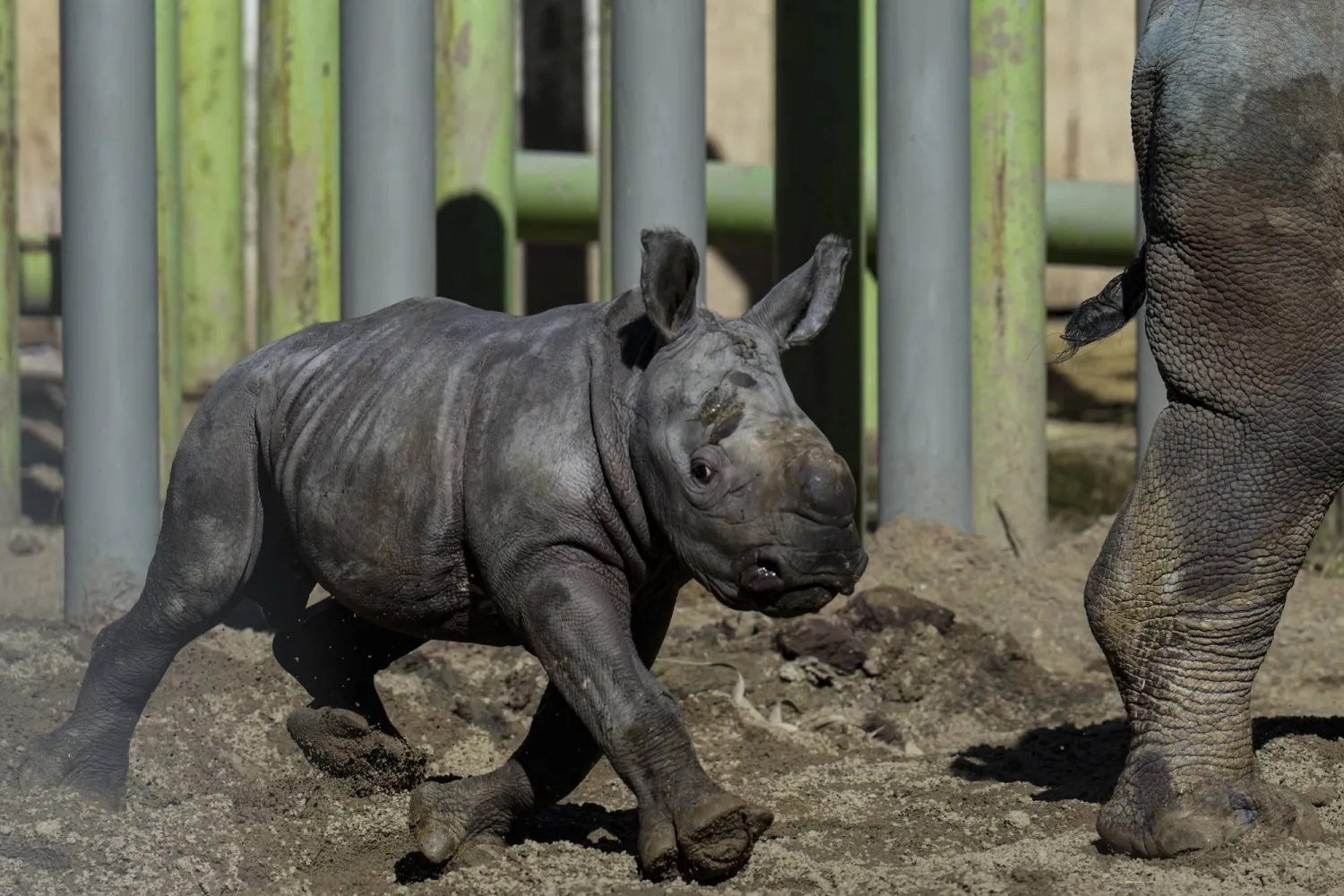Hannah, a 13-year-old white rhinoceros, has delivered a newborn calf in a rare zoo birth for the almost endangered species.
The arrival of the male calf, named Silverio, two weeks ago marked the third time that a white rhino had ever been born in South America. The Buin Zoo in Chile's capital of Santiago unveiled Silverio to the public on Tuesday as he took his first giant-footed steps after 12 days of medical care in confinement.
The zoo hailed his birth as a “big achievement” for conservationists worldwide. Over the past year, only eight other southern white rhinos have been born, The Associated Press reported.
The director of Buin Zoo explained that a recent string of failed rhino romances had dashed the hopes of conservationists attempting to breed the species across the continent. But Hannah and Oliver — a pair of southern white rhinos shipped to Santiago all the way from sub-Saharan Africa just over a decade ago — have hit it off, producing three calves in this one zoo.
“There are several zoos in Latin America that have a rhino pair and did not manage to reproduce,” said zoo director Ignacio Idalsoaga. “We are contributing with a ninth calf to a species that has only a few left in the wild.”
A team of veterinarians closely monitoring Silverio declared him healthy on Tuesday.
The success story comes as fewer and fewer white rhinos roam the African plains. Northern white rhinos have effectively gone extinct, although the international scientific community has started to revive the species through assisted reproduction and stem cell research.
Southern white rhinos, the northern's close cousin and a more common species, have been classified as “nearly endangered” by the International Union for Conservation of Nature, the world’s main scientific authority on the status of species. There are just over 10,000 individual southern white rhinos left in the world, the vast majority of them in zoos.
That's still a major improvement from the turn of the 19th century, when the species was hunted to near oblivion. Intensive conservation efforts in the last few decades pulled southern white rhinos away from the brink of extinction, a rare example of robust recovery in the face of peril.
But that could change, conservationists say, as hunters continue to kill rhinos for their horns and the mammals can struggle to reproduce in captivity, with a gestation period of 18 months and often more than one male needed to stimulate reproduction.
Humans are the only predators to rhinos, reports the international conservation union, with hunters killing an estimated 1,000 rhinos a year. It says that roughly 17 rhinos are born each year.
Newborn White Rhino Takes 1st Giant Steps in Chile Zoo

Silverio, a twelve-day-old white rhino, runs next to his mother Hannah during his presentation at the Buin Zoo in Santiago, Chile, Tuesday, July 2, 2024. (AP Photo/Esteban Felix)

Newborn White Rhino Takes 1st Giant Steps in Chile Zoo

Silverio, a twelve-day-old white rhino, runs next to his mother Hannah during his presentation at the Buin Zoo in Santiago, Chile, Tuesday, July 2, 2024. (AP Photo/Esteban Felix)
لم تشترك بعد
انشئ حساباً خاصاً بك لتحصل على أخبار مخصصة لك ولتتمتع بخاصية حفظ المقالات وتتلقى نشراتنا البريدية المتنوعة







